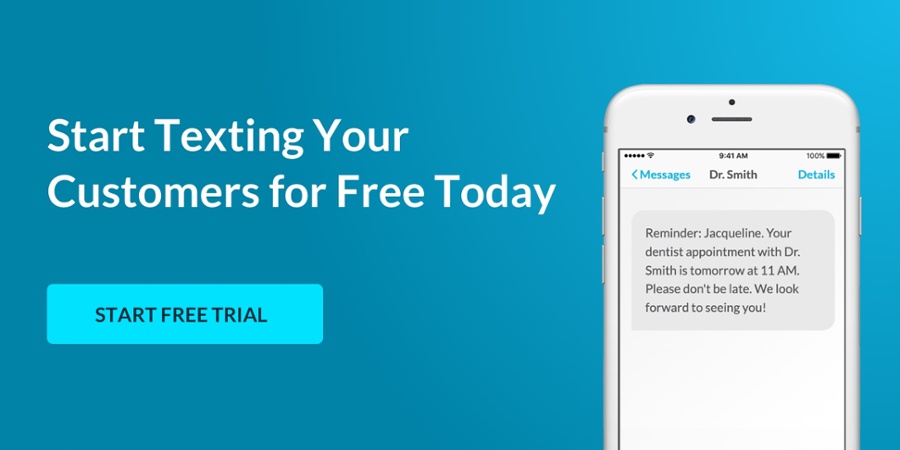In the era of fast communication, businesses and individuals alike rely heavily on SMS as a means to connect with customers, clients, friends, and family. But have you ever stopped to wonder how these text messages seamlessly travel from your fingertips to the recipient's device? Enter the hero of mobile communication – the SMS Gateway.
This guide will delve into what an SMS Gateway is, how it works, and why it remains important in today’s communication landscape.
Table of Contents
What is an SMS Gateway?
Think of an SMS Gateway like a messenger that runs back and forth between the internet and the mobile phone network. It helps send your text messages from apps or websites straight to someone’s mobile phone and vice versa.
Textedly is one of these “messengers.” We enable businesses and organizations to send SMS (Short Message Service) and MMS (Multimedia Messaging Service) messages to groups and individuals directly from our platform, essentially making Textedly an SMS gateway service.
SMS gateways offer businesses significant benefits, including:
- Reliability and Scalability: Messages are consistently delivered, even as your needs grow.
- Global Reach: Ability to communicate across different networks and countries.
- Security: Critical for protecting sensitive information.
- Customization: Many offer features for customization, allowing businesses to personalize messages, schedule delivery times, and track engagement metrics.
- Integration Capabilities: Text message gateways seamlessly integrate with existing software and applications through APIs, enabling businesses to easily incorporate SMS into their workflows.
How Does an SMS Gateway Work?
Imagine sending a text message from your SMS app to a customer's mobile phone. The SMS Gateway takes this electronic message, converts it into a format compatible with the telecommunications network, and delivers it to the recipient's device.
Conversely, it can receive SMS messages from mobile networks, convert them into a format that internet-based applications can understand, and forward them to the right application.
Here’s a deeper breakdown of how this might look:
- Message Origination: It all begins when someone sends a text, either from their phone or an app that works with an SMS Gateway.
- Routing: The message goes to the gateway, which is like a middleman, helping send the message to the person you're texting.
- Message Delivery: The SMS Gateway ensures the message reaches the other person's phone network. Depending on the network's capabilities, it may use protocols such as SMPP (Short Message Peer-to-Peer) or HTTP.
- Delivery Confirmation: Once the message gets to the other person, their phone network tells the SMS Gateway, which then lets the sender know the message made it.
Read: How to Use Textedly: A Step-by-Step Guide
Types of SMS Gateways
There are several types to consider, each with its unique advantages:
- Cloud-based Gateways offer flexibility, scalability, and ease of use, making them an attractive option for businesses of all sizes seeking to engage with their audience through text messaging. Textedly is cloud-based, meaning you can access and manage your SMS campaigns through the internet without the need for installing or maintaining any hardware or software on-premises.
- On-premises Gateways provide greater control and security. These are most suitable for enterprises with sensitive communication needs.
- Integrated Gateways are often part of larger communication platforms. They are a great option for businesses that want to incorporate SMS services with other communication tools.
Use Cases
SMS Gateways play a crucial role for businesses of all sizes. Mostly, they are leveraged as part of mass texting efforts so businesses and organizations can reach their audiences quickly and all at once. Below are some common use cases.
Marketing Campaigns: Businesses utilize them for text message marketing. They are excellent for delivering promotional offers, updates, and alerts directly to customers' mobile devices, fostering engagement and driving conversions.
Authentication and Verification: They play a crucial role in two-factor authentication (2FA) and account verification processes, enhancing security and preventing unauthorized access.
Appointment Reminders: Healthcare providers, salons, and other service-based businesses use them to send appointment reminders, reducing no-show rates and improving efficiency.
Emergency Notifications: Governments, educational institutions, and organizations use them to broadcast emergency alerts and notifications during crises, ensuring timely dissemination of critical information.
Connect with Your Audience with Textedly
SMS Gateways, like Textedly, are the backbone of mobile communication, facilitating the seamless exchange of text messages across diverse networks and platforms. Whether for marketing campaigns, authentication processes, or emergency notifications, SMS Gateways empower businesses and individuals to connect, engage, and communicate effectively in an increasingly digital world.
Start for free with Textedly and discover why businesses of all sizes and industries turn to our platform for their communication needs.







.png)